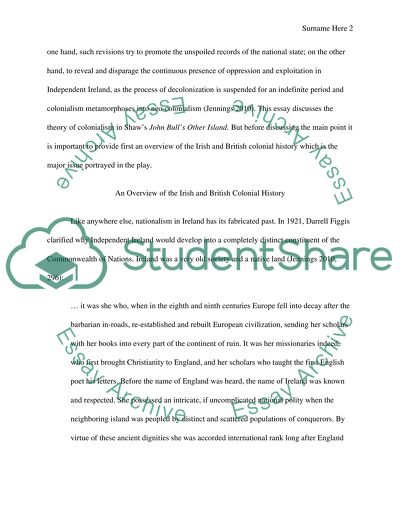Cite this document
(“Colonialism in John Bulls Other Island Thesis Example | Topics and Well Written Essays - 4000 words”, n.d.)
Retrieved from https://studentshare.org/literature/1394971-colonialism-in-john-bulls-other-island
Retrieved from https://studentshare.org/literature/1394971-colonialism-in-john-bulls-other-island
(Colonialism in John Bulls Other Island Thesis Example | Topics and Well Written Essays - 4000 Words)
https://studentshare.org/literature/1394971-colonialism-in-john-bulls-other-island.
https://studentshare.org/literature/1394971-colonialism-in-john-bulls-other-island.
“Colonialism in John Bulls Other Island Thesis Example | Topics and Well Written Essays - 4000 Words”, n.d. https://studentshare.org/literature/1394971-colonialism-in-john-bulls-other-island.


